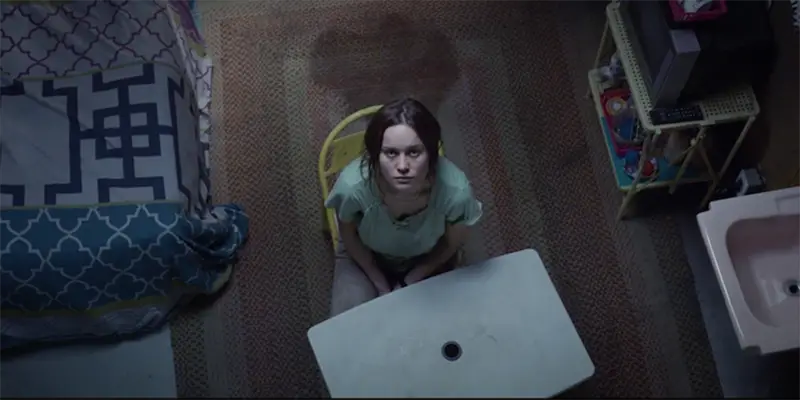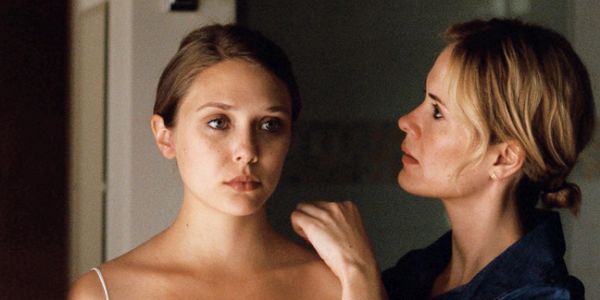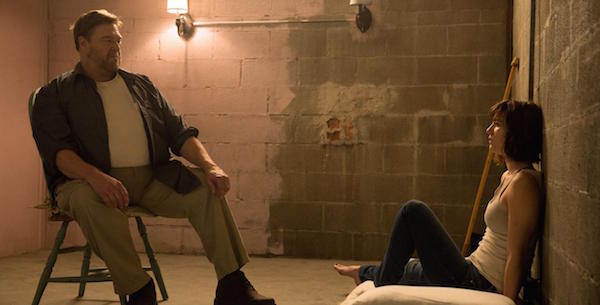A Girl Escaped: Jailed Women In 21st Century Cinema

Liam Ball is a 23 year-old film graduate who regrets…
Because the Internet can take a person virtually anywhere in the world and provide potentially infinite vats of knowledge, raising children in a dictatorial environment nowadays seems more ridiculous than ever. The mechanics of detaining an adult with an existing awareness of the outside world is even more bewildering, because chances are they’ve read about the Josef Fritzl case and have at least some idea of how to escape.
Alas, cinema, ever the portrayer of such cultural terrors, has provided startling means with which to explore such a phenomenon. Starting with Dogtooth in 2009, there have been countless filmmakers exploring the phenomenon of kidnap and imprisonment in an era when communication to the outside world is freely accessible. From young girls to grown women, these films use homegrown, small-scale totalitarian societies to comment upon the treatment of females in society.
Family values
With three kids raised entirely within a sealed-off compound, and with the mother forever staying home to maintain the status quo, Dogtooth explores an old-fashioned patriarchy hell bent on excluding pop culture and communication from the household. This way, the children can be moulded in whichever way the parents wish, without any interference from erstwhile dreams and ambitions.

Their key technique is in brainwashing their kids to believe in alternate meanings for words – a “phone” is a salt shaker, a “pussy” is a big light – so they don’t develop an interest in the things those words actually signify. It totally curbs their imaginations, thus achieving is the desired effect. When asked about a recent dream he had, the son says, simply: “I dreamt my mother fell into the pool”. Only when the eldest daughter acquires VHS copies of Rocky and Jaws does she begin to yearn for a life beyond the end of their driveway.
But before she plots her escape, her father finds the films. He punishes her with it, taping a VHS to his hand and battering her across the skull with it. It’s by far the worst punishment he delivers to his kids in the film, and it’s matched only by the vengeance he delivers to the woman who provided the VHS tapes in the first place. She is knocked unconscious with her bulky video machine.
The outsider in question is the security guard the father hires to sleep with his son (clearly his favourite child). After the VHS incident, he replaces the security guard with the eldest daughter, ordering her to satisfy her brother’s sexual needs. Understandably, the eldest daughter finds the whole situation intensely degrading, and seeing as she’s never received the same treatment as her brother – the providing of a sexual partner – the ordeal is clearly very painful for her.
As much as the son is a victim in this bizarrely dysfunctional family also, he seems completely callous to his sister’s discomfort. In this, Dogtooth is preventing a microcosmic view of the world in which men are raised to desire women, and women are raised to simply “be there” for men. This is an observation as old as time itself, but that it still feels especially pertinent today is a clear sign that writer-director Yorgos Lanthimos is hitting on something hugely culturally precise.
Life in a bigger prison
Besides, that point is further explored in Sean Durkin’s Martha Marcy May Marlene, in which a disturbed young woman – the eponymous Martha – escapes from a similarly patriarchal cult that attempts to disguise itself as progressive. Like Dogtooth, sex is a strong driving factor in Martha’s social commentary, which is mainly because the newest pledges to the cult are predominately women, and their initiation rituals invariably involve an involuntary tryst with leader Patrick.
But it’s only when we see Martha trying to reintegrate herself to regular society following her escape that the effects of such an ideology become apparent. In an early scene, she strips nude to swim with her brother-in-law, Ted, which provokes outrage from her sister, Lucy. Later, she invades the bed in which Lucy and Ted are having sex.

In a series of flashbacks, the viewer learns that Martha had been brainwashed by the cult to expose herself readily, and that she existed purely to satisfy the needs of the males; she’s essentially taught to become little more than a body.
While this ostensibly adds little to the polemic of Dogtooth, what Martha Marcy May Marlene contributes to the discourse on contemporary sexism is in Ted’s evident attraction to Martha. Following the lake scene, he begins to take an interest in her, even taking her out on his yacht and suggesting, once again, that they go swimming.
Martha, evidently, has lost all ability to pick up on such flirtatious behaviour, which is probably because the cult members simply raped her whenever they wished. But following her silent rejection, Ted begins to have less and less patience for Martha, viewing her as a parasite living rent and tax free in their sizeable lake house.
His new disdain for her is only exacerbated when she interrupts his sex with Lucy; that this particular incident seems to anger him the most speaks volumes as to what he really values in life. When all is said and done, he isn’t enormously different from the men in the cult, given that he seems to objectify Martha (and women in general) in the exact same fashion as they do, albeit less forcibly so.
Surrogate daughters
One final core example is this year’s 10 Cloverfield Lane, in which Michelle is knocked unconscious during a car accident, and later awakens in an underground bunker. Howard, the owner of the bunker – and who may or not be Michelle’s kidnapper – informs her that she is to stay where she is. The shelter is purpose built to withstand disasters such as the one that’s destroying America as they speak. Or so he tells her.

Howard seems highly untrustworthy at best, and viciously dangerous at worst. Initially, he treats both his guests, Michelle and fellow straggler Emmett, with equal intolerance, but soon becomes protective over Michelle in a seemingly innocuous fashion. That is, until the three characters play a word association game with each other’s names, which goes terribly awkward when the only way a spluttering Howard manages to describe Michelle is “princess”.
Soon thereafter, Michelle and Emmett learn that “Megan”, the girl Howard explains to be the daughter he lost in a custody battle, is actually a girl from Michelle’s school named Brittany who disappeared. They eventually find sufficient evidence to suggest that Howard had abducted Brittany in a similar way to Michelle and then killed her. Around the same time, Howard begins to act peculiar: he reveals traits in his interactions with Michelle that suggest that he views her as a surrogate for Brittany (or, originally, Megan).
Indeed, the way Howard treats Michelle is completely infantilised. That he also tries to kill her when she attempts to escape his overbearing manhandling is where the film’s commentary is completed.
[easy-tweet tweet=”‘That these films are culturally relevant is terrifying and sorely begs for change.'” user=”FilmInquiry” usehashtags=”no” template=”light”]It’s not enough that the film makes an argument on the male’s desire to own women, take them under their wings, and nurture them without them seeking independence. 10 Cloverfield Lane literalises the danger in this, as well as portraying how creepy such behaviour is, and how disturbing it is to want to essentially reduce the image of the woman to what is, essentially, a pet.
Conclusion
Most of these arguments are collated into Lenny Abrahamson’s Room, in which a child is raised in captivity, knowing nothing of the outside world. His mother, having spent nineteen years in the real world, is raped and captivated within a tiny shed by a man who shares many traits with the antagonists in Dogtooth, Martha Marcy May Marlene, and 10 Cloverfield Lane.
While nothing stated by any of these films is particularly revolutionary, it is easy to see troubling real world analogues for the events contained within them. That these films are culturally relevant at all is slightly terrifying and sorely begs for change.
How well do you think these films relate to real world issues facing the treatment of women? Let us know what you think in the comment section below.
Does content like this matter to you?
Become a Member and support film journalism. Unlock access to all of Film Inquiry`s great articles. Join a community of like-minded readers who are passionate about cinema - get access to our private members Network, give back to independent filmmakers, and more.
Liam Ball is a 23 year-old film graduate who regrets to inform you that he lives in the north of England. He's been writing about film since 2013, contributing here and there as one often does, and is currently preparing a research proposal on Ozploitation (or 'Australian horror, action, and exploitation cinema', if you're not into the whole brevity thing). He becomes irrationally angry towards anyone who says bad things about Clueless.













